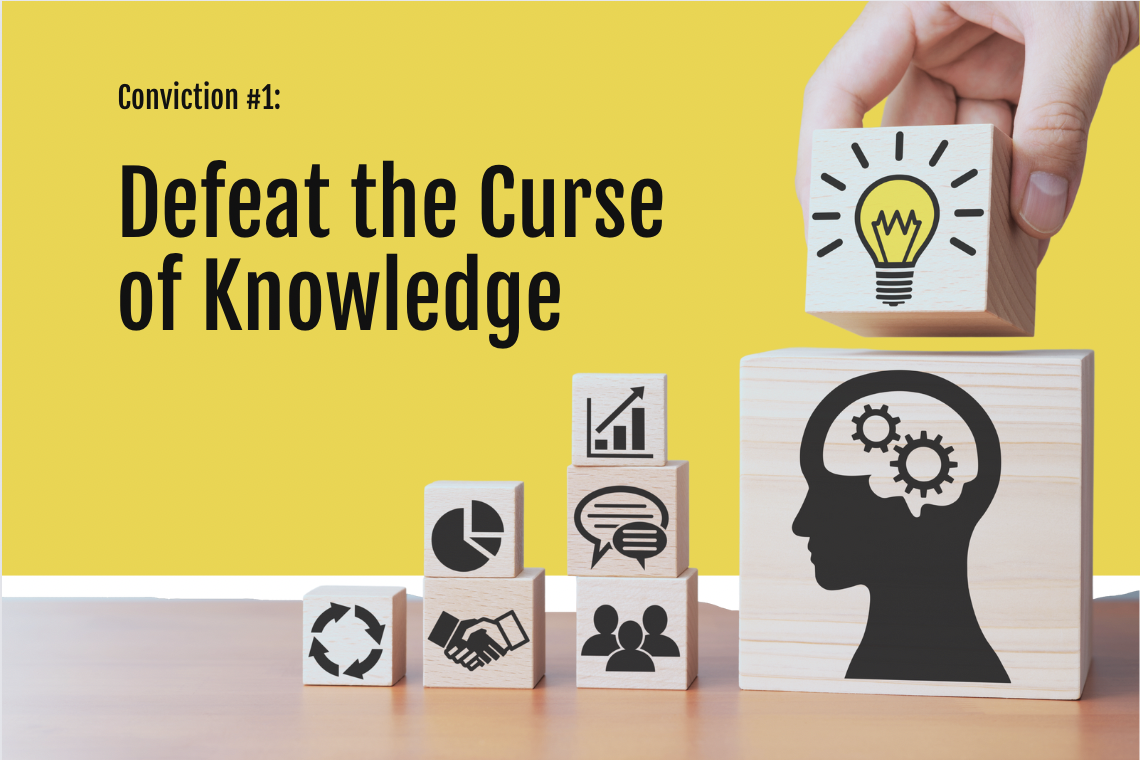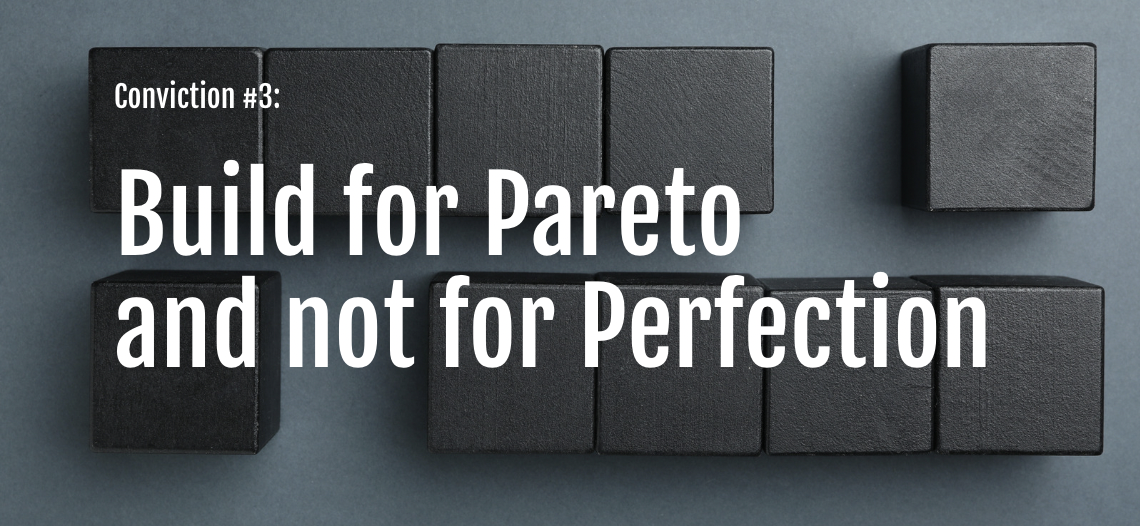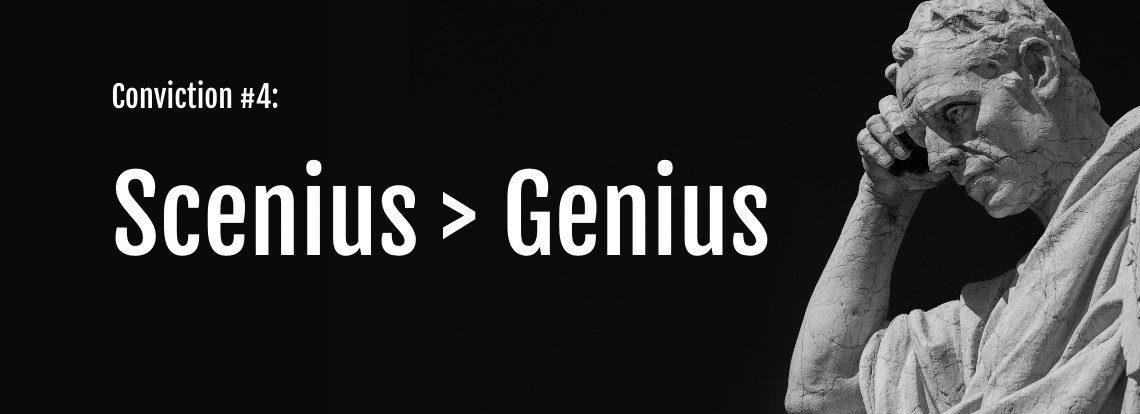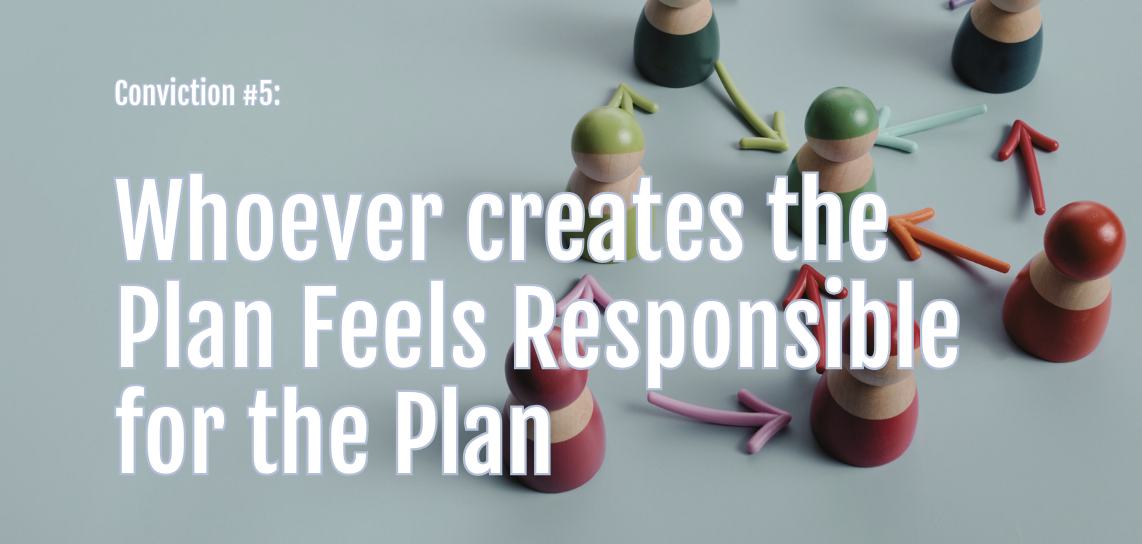Catapult’s Strategic Planning Secret Sauce – The 5 Essential Ingredients of a Winning Strategy

There is a cruel irony in being a successful leader of an organization. Your experience, expertise and knowledge can become a curse.
Organizational psychologist and Wharton Business School professor Adam Grant writes in his book Originals, “The more expertise and experience people gain, the more entrenched they become in a particular way of viewing the world…As we gain knowledge about a domain, we become prisoners of our prototypes.”
This is The Curse of Knowledge.
Think of it this way – Your own success works against you.
It’s as if your triumphs conspire against your creativity. The very domain you’ve come to know intimately transforms into a gilded cage, stifling your creative thinking and imaginative problem solving. Ironically, what you need most from someone leading your strategic planning process is not a seasoned sage of your industry:
You need someone who can serve as a strategic outsider.
Someone who can adapt seamlessly to any sector, with expertise centered on guiding the strategic planning process. Our Vision Integrator is specifically designed to help you defeat the Curse of Knowledge by bringing an outsider’s perspective, fresh insights and a collaborative process built for finding innovation.

In strategic planning, the only thing that we can count on is the inevitability that the world will change.
We must become adept at anticipating and adapting to a future that has yet to materialize. This proactive approach to readiness and innovation will enable us to thrive in an ever-evolving landscape.
Wayne Gretzky is, undoubtedly, the greatest hockey player of all time and one of the greatest athletes who ever lived. When he was asked why he was such a remarkable player, he said it had little to do with his natural talent or raw athleticism. He boiled it down to one simple thing:
“I skate to where the puck is going to be,
not where it has been.”
What made Gretzky great was an ability to see the future before it arrived yet. That is exactly what a good strategic plan should do.

“Perfection is the enemy of progress.”
Winston Churchill
The Pareto Principle states that 20% of your time, energy and resources will produce 80% of your results. In other words, find the right twenty percent to focus your energy on rather than trying to find the perfect solution.
In a world marked by constant change and resource constraints, two essentials emerge: the need for a strategic plan that focus your energy for maximum impact and the ability for that plan to remain flexible.
A pivotal moment in organizational development occurred with the creation of StratOps, a comprehensive strategic planning process developed collaboratively with Disney and Tom Patterson. Its profound impact on both for-profit and nonprofit sectors cannot be overstated. Over the past 30 years, whether organizations employed the formal StratOp method, turned to other consultants like McKinsey, or utilized another strategic planning tool, chances are they were working with some iteration of the original.
The issue is that these strategic planning processes create a perfect plan, with endless minutia. The result: a 70+ page binder that gathers dust on a shelf while the world changes.
Our planning process will help you find the right 20% to achieve the greatest return on your investment of time and energy. It’s also flexible, practical and pragmatic, so that as things change, you have the flexibility to adapt.

Scienus believes that communal genius is far more powerful than individual genius. It believes that the best work doesn’t come from a lone genius locked in a room. It comes from a group of highly committed people chasing after the same mission together.
Scenius > Genius.
Think about it like this: Brian Eno is one of the most successful, behind-the-scenes creatives in the last 200 years, but only a handful of people know who he is. While he has released a few music albums of his own, his real contribution comes through being a music producer, a harrowing role of shepherding a project from inspiration to completion. He’s produced albums for U2, Talking Heads, David Bowie, Coldplay, David Byrne, James Blake and a host of others.
When reflecting on the creative process, he noticed that it wasn’t one genius at the center of it, it was something else:
“There were … scenes involving lots and lots of people – some of them artists, some of them collectors, some of them curators, thinkers, theorists, people who were fashionable and knew what the hip things were – all sorts of people who created a kind of ecology of talent. And out of that ecology arose some wonderful work. “So I came up with this word ‘scenius’ – the intelligence of a whole operation or group of people. I think that’s a more useful way to think about culture.”
The Vision Integrator Process is all about ensuring that the right individuals are present in the room, thereby allowing us to harness and curate the collective intelligence of your organization.
We want to make sure you have the right stakeholders in the room from your staff, donors and board. By involving this diverse array of voices and perspectives, we believe your strategic plan will not only be more comprehensive but also more robust and effective, owing to the collaborative and collective effort invested in its creation.

Rather than building a plan we hope people will like and feel compelled by, why not built it with them? The benefits of this collaborative approach extends well beyond mere buy-in. It’s akin to nurturing a garden. When you play a role in cultivating a garden, you’re not just tending to it for the sake of it; you want it to flourish, reflect your care and enjoy the fruit of its success.
Vision Casting and Change Management inherently grafted into the process alongside the individuals who hold the utmost significance for the plan’s success.
One consistent observation we hear is how leaders are pleasantly surprised by the seamless activation of their plan and the substantial momentum it gains. Why does this happen? Because the very people who need to be energized were actively involved in its creation.
Our team has worked with 1300+ nonprofits.
We know there is a difference between having a strategic plan and having a winning strategy.
Additional Articles on Strategic Planning
8 Strategic Planning Tools That Organizations Often Use to Facilitate the Strategic Planning Process
When organizations are walking through a multi-month strategic planning process with a nonprofit consultant, there tend to be a variety of tools that get pulled out of the facilitation tool belt. In our work with 1300+ nonprofit organizations, we have found that...
The 10 Best Nonprofit Consultants & How to Choose The One That Is Right For You
In the realm of nonprofit organizations where every dollar donated is a potential lifeline for a cause, the expertise of nonprofit consultants can shine like a guiding star. Their goal is to work behind the scenes using their knowledge and experience to help...
5 Mistakes Nonprofits Make When Hiring a Consultant
In the complex world of nonprofits, hiring a consultant can feel like trying to figure out how to summon a wizard to solve your organization's most pressing challenges. While consultants possess a particular expertise, nonprofits can sometimes stumble into avoidable...




